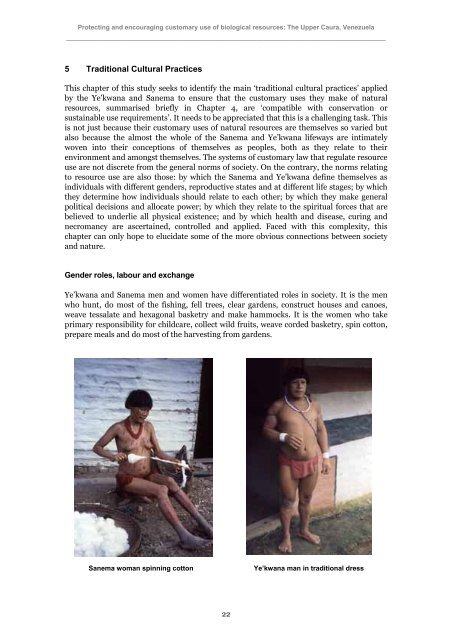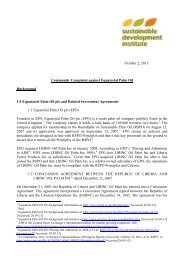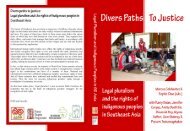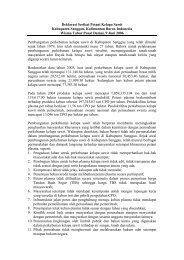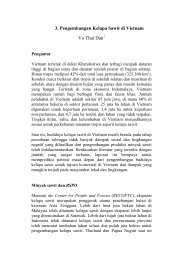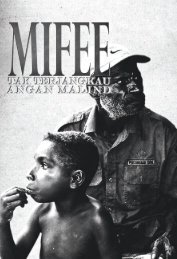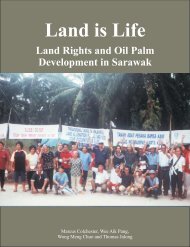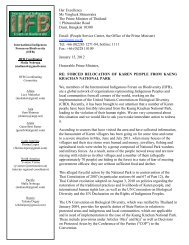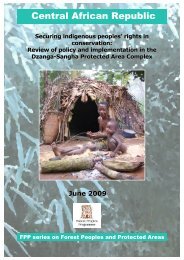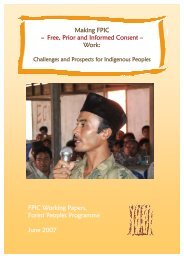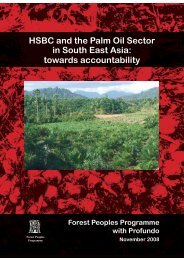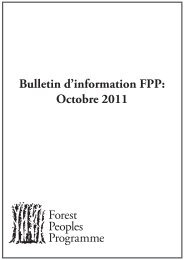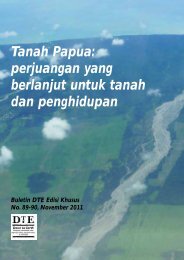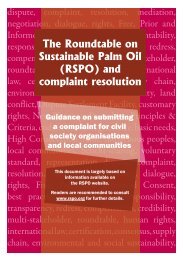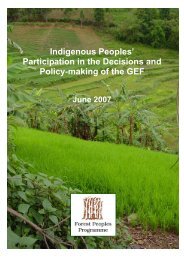The Upper Caura, Venezuela - Forest Peoples Programme
The Upper Caura, Venezuela - Forest Peoples Programme
The Upper Caura, Venezuela - Forest Peoples Programme
Create successful ePaper yourself
Turn your PDF publications into a flip-book with our unique Google optimized e-Paper software.
Protecting and encouraging customary use of biological resources: <strong>The</strong> <strong>Upper</strong> <strong>Caura</strong>, <strong>Venezuela</strong>_________________________________________________________________________________________5 Traditional Cultural PracticesThis chapter of this study seeks to identify the main ‘traditional cultural practices’ appliedby the Ye’kwana and Sanema to ensure that the customary uses they make of naturalresources, summarised briefly in Chapter 4, are ‘compatible with conservation orsustainable use requirements’. It needs to be appreciated that this is a challenging task. Thisis not just because their customary uses of natural resources are themselves so varied butalso because the almost the whole of the Sanema and Ye’kwana lifeways are intimatelywoven into their conceptions of themselves as peoples, both as they relate to theirenvironment and amongst themselves. <strong>The</strong> systems of customary law that regulate resourceuse are not discrete from the general norms of society. On the contrary, the norms relatingto resource use are also those: by which the Sanema and Ye’kwana define themselves asindividuals with different genders, reproductive states and at different life stages; by whichthey determine how individuals should relate to each other; by which they make generalpolitical decisions and allocate power; by which they relate to the spiritual forces that arebelieved to underlie all physical existence; and by which health and disease, curing andnecromancy are ascertained, controlled and applied. Faced with this complexity, thischapter can only hope to elucidate some of the more obvious connections between societyand nature.Gender roles, labour and exchangeYe’kwana and Sanema men and women have differentiated roles in society. It is the menwho hunt, do most of the fishing, fell trees, clear gardens, construct houses and canoes,weave tessalate and hexagonal basketry and make hammocks. It is the women who takeprimary responsibility for childcare, collect wild fruits, weave corded basketry, spin cotton,prepare meals and do most of the harvesting from gardens.Sanema woman spinning cottonYe’kwana man in traditional dress22


